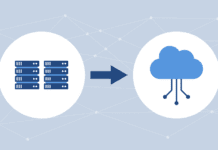NEW YORK — Continuous data protection (CDP) might be getting all of the buzz of information lifecycle management (ILM) in the storage sector these days, but Microsoft isn’t ready to embrace the technology approach.
The company is fresh off the launch of its System Data Protection Manager, which sits atop that Windows Server platform and provides near CDP, backing up byte-level changes.
DPM continually logs changes, but replicates data at most only once per hour, leaving as much as an hour of data vulnerable to loss.
Microsoft Senior Vice President Bob Muglia said the way vendors have been portraying CDP — the practice of backing up and recovering data to disk from any point in time — is somewhat of a misnomer at this point.
“This moniker of CDP is somewhat of a misnomer at the moment, because nobody really provides the ability to restore from any point in time for files,” Muglia told internetnews.com.
“And it may not even make sense. The feedback we get from customers is that that’s not really an interesting scenario. Customers say several times a day is the most they want to do restores, and we provide more than that.”
But he also said Microsoft could look to offer CDP vis-a-vis DPM in the future as the company builds out its storage offerings atop the Windows platform.
“CDP is more interesting in a transactional environment, when you’re dealing with ongoing transactions,” Muglia explained. “As we bring DPM forward in the future and we look at backing up SQL, backing up Exchange, SharePoint … that concept is more relevant. “
“That’s probably where we’ll put our focus in terms of providing more granularity of point-in-time restores. But even there, customers say that there’s not an ability to manage this very effectively, and that having snapshots several times a day is a more effective way of managing that environment.”
A raft of startups, such as XOSoft, Revivio and Mendocino, along with recent CDP entrants like Symantec and IBM, would beg to differ. Symantec just launched Backup Exec 10d, promising block-level CDP.
IBM aired its Continuous Backup for Files earlier this month. EMC is expected to unveil its CDP machinations in October.
Muglia shared his opinion a day after the Redmond giant launched DPM, its latest comprehensive storage push, at Storage Decisions here. The executive had just finished presiding over a roundtable populated by storage executives from AMD, Computer Associates, CommVault, HP, Quantum and Dell, who were on hand to voice their support for DPM.
During the roundtable, the moderator asked Muglia what the future holds for storage, Microsoft’s place in that future, and how DPM will impact the market. Muglia said the storage market is standardizing and becoming less expensive every step of the way, thanks to standard hardware and distributed software products, such as DPM.
“Storage is still an industry dominated by special-purpose hardware that is high-end and expensive,” Muglia said. “We think the industry will go through much of the changes that have happened in the PC space and the generalized industry server space over the next few years.”
The executive said Microsoft and its partners are working to make storage much more universally available to companies of all sizes at greatly reduced prices.
While the cost of storage per megabyte has dropped precipitously in the past five years, Muglia said Microsoft doesn’t think prices have come down as fast as they could and will in the future.
“We’ll see more and more of a drop as standard hardware begins to dominate in the storage space. What’s needed to make that work is software to power that and distributed solutions that can be located at clients, in branch offices, and centralized data centers,” he said.
“We need generalized software that works in conjunction with industry-standard hardware to bring down the cost of storage and improve the availability of data,” Muglia said, noting that Data Protection Manager is one such piece of software.
Article originally appeared on Internetnews.com.





